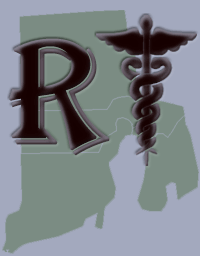NEEDS ASSESSMENT REGISTER NOW
1. Medical Marijuana is Absent from Medical Education.
Most physicians receive no formal training about the medical applications of marijuana, despite the success of an Investigational New Drug (IND) program, under which the federal government currently provides marijuana to 6 medical patients, and despite a large volume of scientific literature on the subject of medical marijuana. While some physicians are aware anecdotally that marijuana has medical efficacy, most have not been exposed to a discussion thereof in a professional context.
The medical marijuana CME conference will bring in an expert clinician and researcher to begin the process of education about cannabinoid medicine and it current status. Attendees will learn about the specific indications of marijuana and research conducted to explain how and why cannabinoids have medical efficacy.
2. New Health Infrastructure and Regulation in Rhode Island.
On April 1st 2006, the Rhode Island Department of Health opened the Medical Marijuana Program. Since that time nearly 250 patients and over 200 caregivers have been admitted to the program. Admittance to the registry offers certain legal protections under state law. There are limits placed on the medical use of marijuana. Physicians should be informed about the legal present in Rhode Island in order to best advise patients. Attendees of the conference will be exposed to regulators from the Department of Health and a local patient advocacy group that can serve as resources for legal and medical information for physicians and patients.
Rhode Island state law also provides legal protections to physicians. Physicians can avoid legal liabilities by understanding the protections offered to them and the limits of those protections. Additionally, there are legal precedents established in federal courts that concern physician’s liability and establish limits for physicians. Attendees will be briefed on how to act within federal and state laws when discussing medical marijuana with patients.
3. Prevalence of Patient Inquiry.
Due to the creation of the RI Medical Marijuana Program and the abundance of media coverage, many patients are approaching physicians with questions about the medical use of marijuana. Doctors should be able to respond comprehensively to patient inquiries. An exposure to current research and medical practices will enable physicians to properly assess patient need. Through the conference, physicians will become familiar with current research findings relating to medical marijuana.
4. Marijuana Abuse and Dependence: Assessing Risk
One of the primary indications for marijuana is pain management. Among neurologists, a physician might authorize the use of medical marijuana for neuropathic pain associated with Multiple Sclerosis, HIV/AIDS and other conditions. Medical marijuana faces many of the same issues associated with opioid pain medications, including possible pre-disposition to abuse and/or dependence. Physicians should have a rudimentary understanding of marijuana pharmacology in order to better understand abuse and dependence and should be able to identity symptoms and signals consistent with abuse and dependence in order to better promote patient well-being and to minimize the risk of malpractice liability.

Join Newsletter
- Home
- Join Mailing List
- Donate
- NEWS (click here!)
- Audio & Video News
- July 2010 E-News
- June 2010 E-News
- May 2010 E-News
- April 2010 E-News
- March 2010 E-News
- February 2010 E-News
- January 2010 E-News
- Dec 2009 E-News
- Nov 2009 E-News
- Oct 2009 E-News
- Sept 2009 E-News
- August 2009 E-News
- July 2009 E-News
- June 2009 E-News
- May 2009 E-News
- April 2009 E-News
- March 2009 E-News
- February 2009 E-News
- January 2009 E-News
- RI MMJ Editorials
- Legal Overview
- Medical Info
- Obtaining a License
- Tips for Patients
- About RIPAC
- Contact Us
RIPAC | 145 Wayland Ave., Providence, RI 02906 | info[at]ripatients.org | 401.861.1601 | Copyright 2024